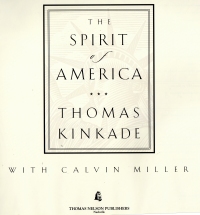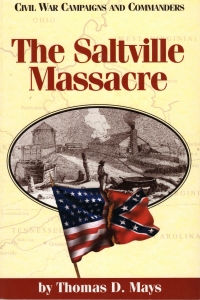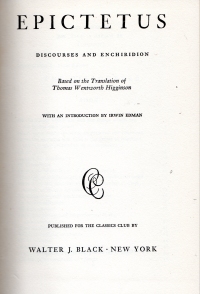Where there are businesses whose model involves taking pictures of cattle.

To be able to say "Noggle," you first must be able to say "Nah."
Where there are businesses whose model involves taking pictures of cattle.

The big NASA announcement about Mars will be a tie in or reminder that The Martian opens this week.
Search your feelings. You know it to be true.
City might take over nonprofit St. Charles art center:
City leaders are considering a takeover of the nonprofit Foundry Art Centre to try to put the financially struggling facility on a more stable footing.
Assigning the Greater St. Charles Convention and Visitors Bureau, a city agency, to run the 11-year-old facility is among three options submitted to the City Council this month.
Another is continuing the city’s $110,000-a-year subsidy for five more years, with operations overseen by the center’s existing board. The subsidy was regarded as a temporary stopgap when the council began it in 2013.
The third option is a combination: providing the $110,000 subsidy but earmarking some of it to the convention bureau for “branding and marketing” of the art center.
This plan differs from some city plans, where the city decides it needs to have its own water park/fitness center/whatever to compete with the neighboring suburb and then finds out that the venture does not break even as promised.
Instead, the city here (and the media and noisemakers who like art but cannot be arsed to support the art center enough) want to take over a struggling, under-supported and probably underappreciated and underused facility. Which will cost more than expected, natch, so the city will have to either reallocate funding for it or propose a tax increase and put it on a ballot in April where nobody but the people who love art when someone else pays for their love of art can come out and vote to increase everyone’s taxes so they can go to the local art museum once in a while. Or at least they’ll live in a better city than St. Peters.
So this cycle continues.
Hey, it’s not that I don’t support the local niceties like libraries and symphonies and whatnot. But I put my money, voluntarily, where my heart is (in addition to that money required by law). I am in the friends of three or four local libraries; I support the local historical societies in three counties; and I’ve even briefly attended a local Symphony Guild fundraiser (and there’s a sad story in that, gentle reader, that I might someday tell).
I don’t ask or demand other people subsidize my interests. And, somehow, some people would fault me for that.
 This book, on the other hand, is what I’d hope from an art book. It’s got lots of paintings, studies for paintings, and not only the story of Andrew Wyeth’s Christina’s World but the story about the artist’s friendship with his neighbors Christina and Alvaro Olson.
This book, on the other hand, is what I’d hope from an art book. It’s got lots of paintings, studies for paintings, and not only the story of Andrew Wyeth’s Christina’s World but the story about the artist’s friendship with his neighbors Christina and Alvaro Olson.
As I’ve mentioned, Christina’s World is one of three prints I had on my wall in my younger years. But I didn’t really know about Andrew Wyeth or the source material, and this book gives both. The painting depicts a scene in coastal Maine, for crying out loud, and I had always assumed Kansas.
At any rate, Wyeth spent a lot of time painting and sketching his neighbors, the Olsons, and their farmhouse. This book includes a lot of that material as well as photos from the time when Wyeth was painting. And allusions to how popular the images became in his–and Christina’s–lifetime.
A very nice book. This is also a former Christian County library book, but none of the images are missing. So, yay.
If I’m going to eat up two or three of these art books a week, I’m fortunate that the semi-annual library book sales are coming up in a month.
Books mentioned in this review:
SGF gets grant to hire 11 police officers:
The grant, about $1.3 million over a three-year period, comes from the U.S. Department of Justice’s COPS Hiring Program. The city must match 25 percent. After the three years, the city is expected to fund 100 percent of the added officers.
Of course, the city won’t have the money in three years, so it will need to raise taxes to cover the “free” money from the Federal government.
At which time, undoubtedly, the Federal government will have a different grant or program to add to local ongoing expenses.
I did something for a client recently where I isolated a bug that had afflicted them and caused them some grief and loss of face with their client, and I called myself Hero of the Beach.
That comes, of course, from the old Charles Atlas ad:
Comic book readers of a certain age would understand why becoming the Hero of the Beach would be the best thing ever.
 When you buy a book with an artist’s name on the cover, you might expect to get a collection of the artist’s work. This book is the exception that proves the rule in the old-fashioned meaning of the word prove, wherein it means “tests.” And in this particular case disproves the hypothesis.
When you buy a book with an artist’s name on the cover, you might expect to get a collection of the artist’s work. This book is the exception that proves the rule in the old-fashioned meaning of the word prove, wherein it means “tests.” And in this particular case disproves the hypothesis.
Don’t get me wrong,there are a handful of Kinkade’s works in the book. But the bulk of it is about thirty small chapters wherein Pastor Calvin Miller has created the story of an American immigrant from Belgium who talks about his life coming to America at the turn of the twentieth century and the progress he sees as he lives with his father on a small town in the middle of America throughout the century. Ultimately, it’s late 1990s end-of-history pablum, and we here two decades into the future are a more feral bunch. Amid the copy, we generally get a single Kinkade painting with various closeups presented.
To make matters worse, this ex-library book has at least two of the images of the paintings missing. Someone cut them out of a library book. I hate to think that somewhere in Christian County, Missouri, there are framed Kinkade pictures from this book. Perhaps someone gave them out as Christmas gifts.
And before you get all Internet-snarky on it, I was interested in seeing more of his work. I think some of them are pleasant and nostalgic, not unlike Currier & Ives. I don’t have any Kinkade in the house, but I’ve got some Renoir, and the only thing that differentiates Renoir from Kinkade is Renoir is French and his paintings are blurry.
So I’m disappointed in the book, but not the artist.
Books mentioned in this review:
Aaron Rodgers is the current and future NFL iron man if this story is to be believed:
So while I was working today, I had to work through a CAPTCHA over and over again. And this appeared:
The center image is the intersection of Swon and Lockwood. In Webster Groves. It’s not the street on which I lived, but I passed through that intersection fairly often while walking a baby some eight years ago.
So, do you think this is a coincidence, or does the CAPTCHA know things about me?
I’m paranoid, so you know which one I think it is.
On Saturday mornings, I often remind my children, “Es Sábado Gigante!”
I must have seen a bit of it on Univision once in the early 1990s.
Well, all gigante things must come to an end:
Sábado Gigante, the quirky, iconic, 53-year-old variety show that has been a fixture for generations of U.S. Hispanics, will broadcast for the last time on Saturday night. As they prepared to say farewell, Sábado’s beloved host, Don Francisco, and his followers looked back on their time together with nostalgia and emotion.
“I started doing this when I was 22 years old, and since then, my whole adult life has transpired,” Mario Kreutzberger (Don Francisco’s real name), told El Nuevo Herald shortly before a taping for Saturday’s show. Kreutzberger, 74, married, raised three children (including a son named Francisco) and had nine grandchildren.
It’s not as though I’ll stop saying it, but there’s no chance my children will catch it while flipping through cable in college and think of me.
 This book might make it look as though I have undergone the fundamental shift (mentioned here) about shifting my focus from reading about classical Greece and Rome to the American Civil War. However, although it might be a sign, it might also only be a sign that I was looking for something short and informative to read on the road. Which I did; I read this in a single sitting during one of my four hour nights at the dojo.
This book might make it look as though I have undergone the fundamental shift (mentioned here) about shifting my focus from reading about classical Greece and Rome to the American Civil War. However, although it might be a sign, it might also only be a sign that I was looking for something short and informative to read on the road. Which I did; I read this in a single sitting during one of my four hour nights at the dojo.
This book focuses on a single campaign/battle, the Saltville Massacre, and describes the events leading up to it, the battle itself including maps of all the major assaults, and the aftermath. It also includes numerous sidebars with short biographies of the officers on both sides. The book is a part of a series, of course.
The Saltville Massacre was an attack on Saltville, Virginia, by a Federal/Union army trying to wrest or destroy the saltworks there. The town and works were defended by a small group of Confederate soldiers and a small group of militia. The Union forces advanced and then stalled and tried to take some ridges but failed. After they withdrew, the Confederates took to the battlefield and killed any wounded black soldiers they found; additionally, a local irregular went into a hospital to settle a personal feud and to kill a couple more wounded blacks. The irregular, Champ Ferguson, was one of two Confederates hung for war crimes.
At any rate, as I said, it was short and informative. If one chooses to study in depth, one becomes used to the conventions of military science books and reading them becomes easier. The battle reminds me a bit of the Battle of Wilson’s Creek, the local Civil War battle, but since I live within sight of that battlefield, I try to work it into a lot of conversations. Another thing that struck me was the bridge between classical warfare and modern mobile warfare. Although much of the fighting is assaults on defensive positions, the book does include one mention of offering battle–that is, lining up and trying to get the other army to come out and meet you. I haven’t studied that much military science, but that does seem to have fallen quite out of favor for obvious reasons.
I don’t remember where I got this book; however, I’ll keep my mind out for others in the series and others of the kind. They’re quick reads and informative, and cumulatively they’ll make me smarter on military science and history.
Books mentioned in this review:
 It’s football season, so it means it’s time here at MfBJN to start writing book reports on art, photography, and poetry books that I can read during the commercials of football games. This book should have been the first of the series, but I didn’t actually get to it during the football game.
It’s football season, so it means it’s time here at MfBJN to start writing book reports on art, photography, and poetry books that I can read during the commercials of football games. This book should have been the first of the series, but I didn’t actually get to it during the football game.
The book is a Dover reprint of a work by a nineteenth century photographer. Dover reprints a lot of stuff that goes out of copyright and priced it at a couple bucks. So it’s the same book as appeared soon after the Civil War that was the subject of many of the images.
The photographer followed Sherman as his army moved through Georgia in the latter part of the war. The early part of the book contains images from the campaign; the latter part depicts the battlefields and landscapes after the action occurred because the army was moving too fast for him to keep up with the elaborate processes of photography.
The reason I didn’t get to the book during the football game is that the first ten pages or so are the photographer’s notes from the campaign. They vary from high-level name checking of the numerous generals and officers in the campaign to very detailed troop movements, and they’re not smoothed out or edited to a consistent level of detail. Unfortunately, this makes it tedious to follow during or after a football game. But the fellow was a photographer, not a journalist.
And the images are images of the Civil War and thereabouts in Georgia. The photography makes the war slightly more real than the Roman Civil War under Caesar or Scipio’s chasing Hannibal from Italy.
Strangely, this is a former Christian County Library book, which means I bought it instead of inheriting it from my beautiful wife’s uncle; when he passed, he left many of his books to me, and he had a lot of detailed and scholarly work on the Civil War (including a first edition of Grant’s memoirs which I’ll eventually read and probably devalue with Cheetos dust). So when I veer from my current Ancient/Classical Greece and Rome kick, perhaps I can binge read on this topic.
Books mentioned in this review:
Miss Ford asks:
If I close my eyes forever
Will it all remain unchanged?
If I close my eyes forever
Will it all remain the same?
We turn to members of the Eleatic School, Parmenides and Zeno, to answer.
Parmenides: Yes indeedly do (Μπορείτε να στοιχηματίσετε γάιδαρο σας). How could what is perish? How could it have come to be? For if it came into being, it is not; nor is it if ever it is going to be. Thus coming into being is extinguished, and destruction unknown.
Zeno: That counts quadruple for semi-forgotten 80s hair metal. Then it counts double. Then it counts once. Then one half. And so on into infinity. If everything when it occupies an equal space is at rest, and if that which is in locomotion is always occupying such a space at any moment, the flying arrow is therefore motionless.
Parmenides: [What exists] is now, all at once, one and continuous… Nor is it divisible, since it is all alike; nor is there any more or less of it in one place which might prevent it from holding together, but all is full of what is. So get over yourself.
Every year for Christmas, my mother-in-law gives us calendars. Last year, she made personal calendars for each of us with custom collages for each month.
August, I rediscovered as I belatedly turned the calendar to the half-over new month, was books for me. She collected images from my blog of books I read last year, a couple images of my bookshelves, and one emasculating extraneous inclusion:
I have not read The Notebook. I am a man.
NOTE: It’s possible I bought the book sometime and she saw it among my Good Book Hunting posts. In which case, I might read it sometime and this feigned outrage may be ignored. Thank you, that is all.
 It’s been not quite a year since I reviewed Rogue Warrior: Designation Gold, and if I hadn’t re-read the report on it, I would have repeated much of the same for this book. The first person narrator is brash and vulgar, and it works okay in some spots but does seem a little much at times. The technical and tactical briefings are broken into the narrative with a certain flair that beats Clancy. And the book has aged too well; written after the “end of history,” the narrator does not think much of the then-current Clinton administration and the military draw-down it performed.
It’s been not quite a year since I reviewed Rogue Warrior: Designation Gold, and if I hadn’t re-read the report on it, I would have repeated much of the same for this book. The first person narrator is brash and vulgar, and it works okay in some spots but does seem a little much at times. The technical and tactical briefings are broken into the narrative with a certain flair that beats Clancy. And the book has aged too well; written after the “end of history,” the narrator does not think much of the then-current Clinton administration and the military draw-down it performed.
In the book, Marcinko finds that someone has been digging up and selling small pocket tactical nukes that the US cached in West Germany for use by special forces in the event of a Soviet invasion. He’s supposed to find remaining caches, but he also decides to find who’s behind it. It’s an ultra-nationalist right-wing German bent on making Germany great again, of course, but Hitler’s frozen head does not make an appearance.
The book was written in 1999, so check out this lament:
The answer lies in the real quntessence of intelligence gathering: the concept that information is the raw material out of which political power can be produced. And because political power is something that budget-intensive organizations (which obviously include all the intelligence agencies) do not want to relinquish, forgo, or sacrifice, most of ’em treat their material as wholly proprietary.
Indeed, they’re like only children who won’t share their toys in kindergarten. The unhappy result is that most intel is stovepiped. It’s kinda like all those smokestacks you used to see in the old industrial zones before the tree-huggers outlawed smokestacks. Each existed parallel to the others. Each ventred its own hot air (Now that’s an apt image, since this is intel we’re talking about here, huh).
In a couple of years, we’d hear about that, wouldn’t we? Which makes me wonder: What is Jamie Gorelick doing now? It’s been a while since something she’s touched has gone to hell, hasn’t it?
Now, did I mention it’s aged too well? Check out these quotes and see if they don’t sound like 2015 instead of 1999:
Gentle reader, welcome to the real world, where DGAS is a way of life.
Whether it’s the White House memos, State Department cables, or the Pentagon’s most secret mission profiles, materials tend to be stored on computers sans safeguards. People don’t like to have to remember passwords. Indeed, they often write the passwords down and leave ’em in their desks. Or to make things easy for themselves (not to mention folks like me), they simply disable all the built-in security devices and make their computers user (and thief) friendly.
And:
The nice thing about the EC is that once they check your passport, you can cross borders at will.
Maybe things will be different in 2030. Perhaps I hope so. Perhaps I hope not, given that different probably means worse.
At any rate, it’s a pretty good read. Of course, it represents the closest thing to 21st century thrillers that I read. Perhaps I should try more. Also, note that Marcinko is still alive and is about 74 now. I’ll be sad when he passes. Although his (and by “his” I mean he and his co-author’s works) aren’t bad reads. You could do worse. I often do.
Books mentioned in this review:
So I tweeted:
I'm currently reading a children's book. About Pythagoras. I'm conflicted about humble bragging about it
— The Director (@QAHatesYou) September 8, 2015
I was referring to this book, a children’s (or young adult) book in a series on ancient philosophers that includes volumes on Archimedes, Aristotle, Euclid, Plato, and Socrates. The volume istelf is an ex-library book, which means it got cashiered from the library in under 8 years. The book is in great shape; I wonder, and fear, what they made room for by putting it in the used book sale.
At any rate, as it is a young adult book, it’s chock full of large print, maps, graphics, and tangentally related photographs. But it gives a high-level overview of the (purported) life of Pythagoras and the thought and impact of the Pythagorean society’s research into mathematics and music. It dovetails nicely with Copleston’s History of Philosophy that I’m reading.
I’m glad I read the book and wouldn’t mind reading the others in the series, but I see this particular volume goes for $30 or more on Amazon. Heavens, I think I’ll just look for more of them at the Christian County Library book sale in the coming years. I have plenty of other things to read in the interim, including eight volumes of the Copleston work.
Books mentioned in this review:
The Springfield News-Leader went hot online with this salacious story over the weekend: Owner of Battlefield Mall phone repair kiosk responds to sex trafficking allegations that went viral on Facebook.
You go read it while you can. Basically, a young woman took her phone to the kiosk for repair and got it back; after she did, the claimed there was a sensor on it tracking her calls. She went back to complain and reports a nearby tattooed man was eavesdropping on her. Somehow the tattooed man knew which car was hers in the mall parking lot and was waiting for her near there; fortunately, she had a mall store employee walk her out because she was nervous. Her phone had some odd behavior that seemed indicative to her of….something. Then she was followed as she drove. Just like something on television. So she suspected it was a white slavery or sex trafficking thing.
The News-Leader reached out to her via Facebook, and she didn’t respond.
They got a hold of the owner of the mall kiosk, and he said she’s out of her mind. So the story, essentially, was reprinting a Facebook post from some unknown person along with denials from the person under suspicion.
And the News-Leader ran this as a news story.
The follow-up to the story: Police: Investigation into viral Facebook allegations stalled due to lack of cooperation.
The gist: The woman contacted police, but so did the owner of the kiosk. The woman didn’t respond to the police or the News-Leader and deleted her Facebook account with the viral post.
This, my friends, is 21st century journalism. Haven’t you noticed how many news articles, especially in small city newspapers, describe what the person of interest’s Facebook profile says? It’s as though the kids coming out of journalism schools don’t know how to talk to someone directly, whether via phone or in person, before publishing. This example is just an extreme example of the genre, but it’s definitely on the continuum.
The employees at the post office really don’t want you to explain, as you’re posting a parcel, that everything is flammable at a high enough temperature, hazardous if you eat enough of it, and perishable on a long enough timeline.
 This marks the second time I’ve been through this book; the first was in the autumn of 1994, right after I finished with the university. I remember it distinctly because I carried the book from my job at a computer seller in south St. Louis city to MoKaBe’s coffee house as I awaited a ride from my girlfriend because my Nissan Pulsar was in the shop for an electrical short that would cost it many alternators, batteries, and headlights and me many hours waiting for rides, walking, or awaiting tow trucks.
This marks the second time I’ve been through this book; the first was in the autumn of 1994, right after I finished with the university. I remember it distinctly because I carried the book from my job at a computer seller in south St. Louis city to MoKaBe’s coffee house as I awaited a ride from my girlfriend because my Nissan Pulsar was in the shop for an electrical short that would cost it many alternators, batteries, and headlights and me many hours waiting for rides, walking, or awaiting tow trucks.
At any rate, since I have been on a recent Existentialist kick (The Fall, Existentialism and Thomism, and since I’m counting 2012 as ‘recent’ The Stranger–why not? I’m counting multiple attempts at The Myth of Sisyphus in this kick), I picked it up again. Actually, I considered reading it last summer when the Ebola scare hit, but I decided against it.
I don’t know what I thought of this book twenty years ago, but I wasn’t especially impressed with it this time around. Perhaps I just don’t dig French novels or maybe it’s more specific to Existentialist works, but although the book has a dramatic event unfolding over the course of months and the narrator (spoiler alert) is a heroic doctor working to fight the epidemic, there’s not much action involved. Instead, the book describes some events, but most of it is characters (that the narrator observed) talking or thinking about the events and then many of them die. And the plague goes away. The end.
I suppose that conveys a certain French Existentialist description of life, though.
Books mentioned in this review:
 I started reading this book a couple years back (sometime after Meditations by Marcus Aurelius), but my drive through it petered out as it, like the earlier work, is thematically repetitive. However, this time I figured I’d slog it out, as I’ve learned some patience and some discipline in reading longer works. So I did over the course of many months.
I started reading this book a couple years back (sometime after Meditations by Marcus Aurelius), but my drive through it petered out as it, like the earlier work, is thematically repetitive. However, this time I figured I’d slog it out, as I’ve learned some patience and some discipline in reading longer works. So I did over the course of many months.
The book was not written by Epictetus; instead, it was written down by one of his students and is based upon that student’s notes on Epictetus’s classes, essentially, in Stoic philosophy. This accounts for some of the repetitive nature of it and why the book is not developed as a treatise; rather, Epictetus revisits certain themes several times. One can imagine him telling the same lectures to a different group of students. At one point, he even tells the transcriber to stop writing this stuff down. Which the transcriber does not.
At any rate, I took some positive things from the book. One of the greatest Stoic themes in the book is, to Americanize it, that a man has got to know his limitations. That which you can control is not so much events, not other people, not the world around you, but your own will. You can’t even really control your own body, not completely. So don’t search for happiness in these things but only in the way you deal with things and how you live in spite of them. Okay, that’s good stuff and a valuable lesson there.
However, Epictetus extends this principle to not ascribing value to other things I consider important.
Nay, these arguments of all others make those who adopt them obedient to the laws. Law is not what any fool can do. Yet see how these arguments make us behave rightly even towards our critics, since they teach us to claim nothing against them, in which they can surpass us. They teach us to give way in regard to our poor body, to give way in regard to property, children, parents, brothers, to give up everything, resign everything: only our judgements they reserve, and these Zeus willed should be each man’s special property. How can you call this lawlessness, how can you call it stupidity? I give way to you in that wherein you are better and stronger than I: where, on the other hand, I am the better man, it is for you to give way to me, for I have made this my concern, and you have not. You make it your concern, how to live in a palace, how slaves and freedmen are to serve you, how you are to wear conspicuous raiment, how you are to have a multitude of huntsmen, minstrels, players. Do I lay claim to any of these? But you, for your part, have you concerned yourself with judgements? Have you concerned yourself with your own rational self? Do you know what are its constituents, what is its principle of union, how it is articulated, what are its faculties and of what nature? Why are you vexed then, if another who has made these things his study has the advantage of you here?
Epictetus points out that your family and your children are not your volition, so they’re not really ultimately valuable. Only your will is. In many places and in many different ways, Epictetus pledges a certain servility to the Tyrant and to nature and acceptance of whatever they decide for you. It’s like the first part of the Serenity Prayer (“God, grant me the serenity to accept the things I cannot change,”) without the rest (“The courage to change the things I can,/And the wisdom to know the difference.”).
The book does allude to the right way to live, seeking to live according to God’s will, but it’s rather light on what that will is or what universal precepts might dictate proper action (live according to reason and within your limitations are nebulous at best).
Still, I’m glad I read it. I’ve got some additional classic literature cred, which impresses pretty much nobody I know, and it does give me some ideas and perspective to put into practice in my life. As I explained to my beautiful wife, philosophy is just self-help books with bigger words in them.
Books mentioned in this review: